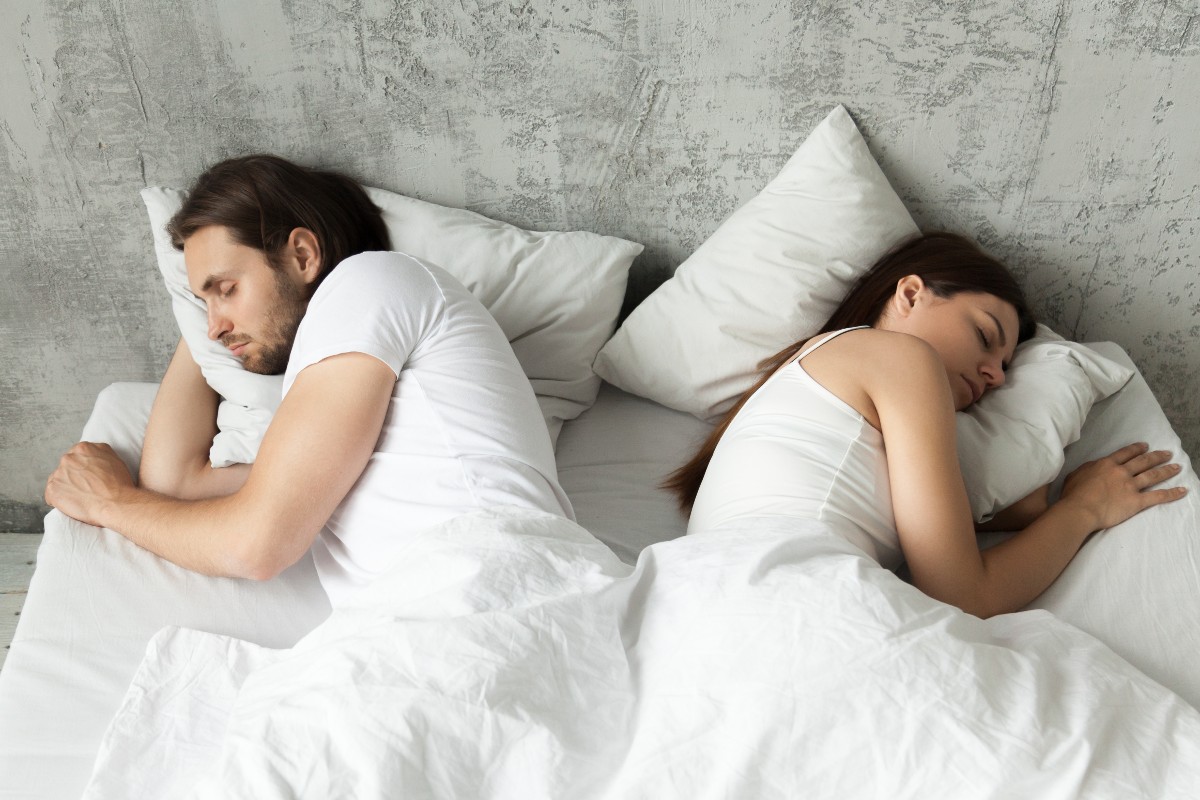
No More Waking Up on the Wrong Side of the Bed
Sleeping On The ‘Right’ Side Could Make You Feel More Positive Each Day
We all know the familiar feeling. We wake up on the wrong side of the bed and can already tell the upcoming day might be a long one.
Whether you’ve slept through your alarm, been woken up by a noisy neighbour on a Sunday morning, or simply feel like you could sleep for a week, waking up groggy is never nice. But what if you get up on the ‘right’ side of the bed?
Well, it’s official: people who get out of bed on the ‘right’ side are more energised and look forward to the day ahead. According to our recent study, those who kip on the right-hand side of the mattress (righties) are far less likely to wake up in a bad mood than those who doze on the left (lefties).
So, is there anything in choosing the right side of the bed? We wanted to find out.
Which is the right side of the bed?
Analysing the sleeping patterns of 1,000 adults, our research found that men prefer to sleep on the right (67%), with 16% claiming they sleep on their given side of the bed because they let their partner choose. Women were found to be creatures of habit, with 68% saying they stick to the side they’ve always slept on, and more women than men choose to sleep by the door (24% vs 21%).
Other reasons for opting for one side over the other include wanting to be further away from the window (9%), by the side with a plug socket (9%), having a better view of the TV (9%), being closer to the radiator (8%) and further away from outside noise (6%).
But why can you ‘wake up on the wrong side of the bed’?
Ultimately, a slew of reasons could explain your slightly off morning mood, according to our resident sleep expert, Dr Sophie Bostock.
“Sleep helps us to process the experiences of the previous day. We store factual information in a separate way from emotions, so that we can look back on the previous day without reliving negative emotional experiences.
“Sleep also helps with creativity and problem solving, so we may wake up feeling as though problems are less insurmountable than when we went to bed. Sleep also enables us to lower stress hormones: cortisol reaches its lowest levels overnight. And after a poor night’s sleep, anxiety levels increase - our brains develop a heightened sense of threat, making us feel irritable and impatient.”
Right or left? What does it say about you?
Sleeping on the right tends to mean you get the most amount of sleep (8.6 hours per night on average) and are an early bird compared to lefties, who get 9.8 hours less sleep a week and are 6% more likely to be night owls. We know that quality sleep is vital to our health, and that poor sleep can age you faster, but who knew it could be down to which side you choose?
‘Righties’ are more easily embarrassed than ‘lefties’ (24% vs 22% of lefties), and are more likely to have a large circle of friends (10%vs 8% of lefties). Righties also earn more money than lefties – being twice as likely to earn over £80k a year (12% vs. 5%).
‘Lefties’ on the other hand were found to be more trustworthy and honest (62% vs 54% of righties), better cooks (39% vs 35%) and avid bookworms (26% vs 18%).
Right side risers:
- Wake up feeling energised and ready to take on the world (76%)
- Spend the most quality time with their family (10.9 times a month)
- Go to an art gallery at least twice a month (14%)
- Most likely to be early birds (67%)
- Get the most sleep (8.6 hours a night)
Left side risers:
- Enjoy the cinema at least twice a month (91%)
- Describe themselves as honest and trustworthy (62%)
- Most likely to be night owls (39%)
- Admit that they worry a lot (44%)
- Get the least sleep (7.2 hours a night)
How to improve your sleep quality
So, how can you improve your quality of sleep? Dr Bostock provides five tips to help get up on the right side of the bed:
- You can only get enough good quality sleep if you allow enough time for it! Adults are recommended to get a minimum of 7 hours of sleep each night (1); for most people this means being in bed for 7.5-8 hours.
- Dim the lights within the last 90 minutes before bed, and to try and make your bedroom as dark as possible. This will support your body’s natural production of melatonin (2), the hormone which signals sleep.
- Sleep quality improves with consistent sleep timing (3). If you aim to wake up and prepare for bed at a similar time each day, this will strengthen your circadian rhythms and has been shown to enhance both deep sleep and REM sleep.
- Our circadian rhythms rely on exposure to natural daylight to know that it’s time to be active. Aim to get outside for at least 10 minutes every day within an hour of waking up (4) to kick start your daily rhythm and encourage the brain to be ready for sleep 16 hours later.
- Regular physical activity is one of the best things you can do to improve your health, and it’s great for sleep too (5). People who exercise tend to fall asleep faster, stay asleep for longer and have more deep sleep.
Regardless of whether you sleep on the right or the left, investing in a high-quality bed and mattress will work wonders for your sleep quality. If you still need more help and information to sleep better, head over to our Sleep Hub for expert tips and advice.
Sources:
- https://www.sleepfoundation.org/sleep-faqs/is-7-hours-of-sleep-enough
- https://www.sleepfoundation.org/bedroom-environment/light-and-sleep
- https://www.nhs.uk/every-mind-matters/mental-wellbeing-tips/how-to-fall-asleep-faster-and-sleep-better/
- https://www.cnet.com/health/sleep/morning-sunlight-for-better-sleep/
- https://www.hopkinsmedicine.org/health/wellness-and-prevention/exercising-for-better-sleep

Gemma Henry - Content Lead
Gemma finds sleep fascinating and describes the discovery aspect of her role as eye-opening. Her keen eye for detail and dedication to thorough research ensures that Bensons customers get the informative sleep-based advice they're looking for.